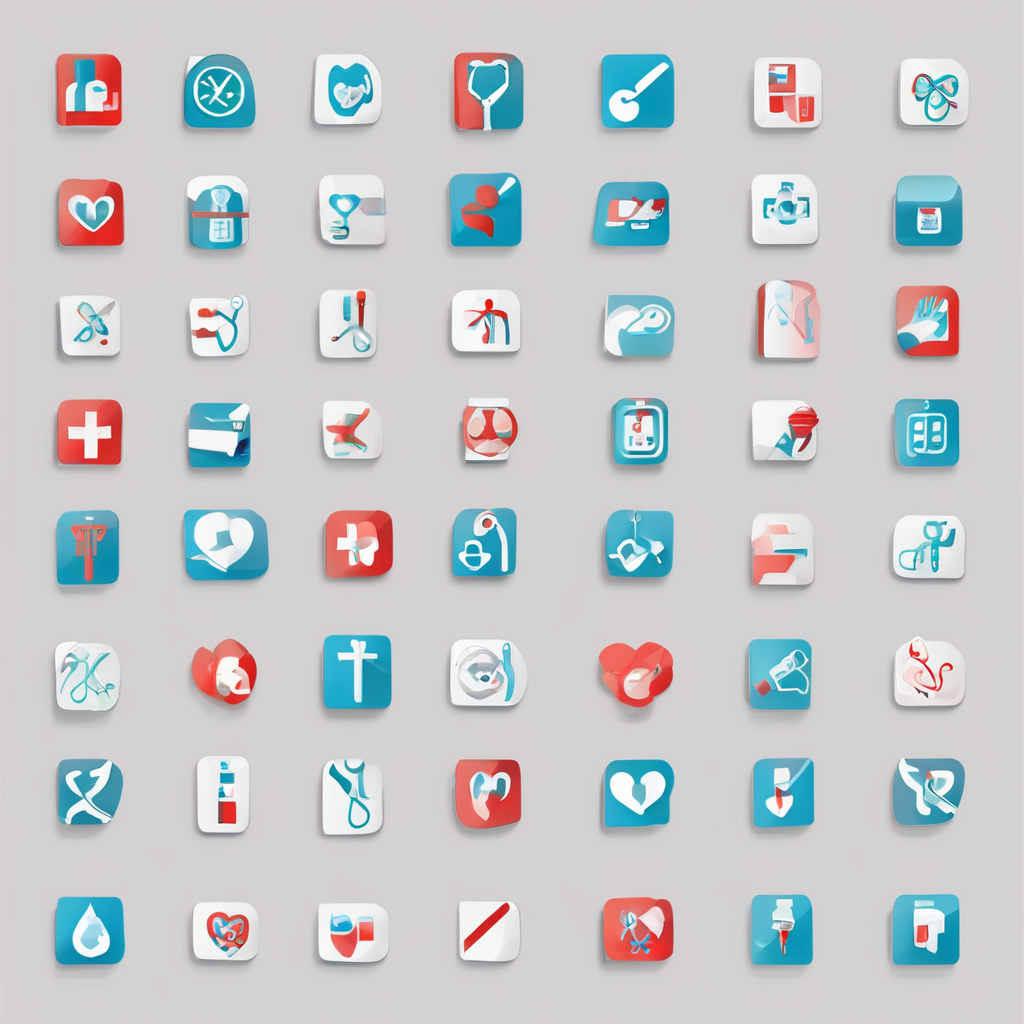Latest Technological Innovations in Prenatal Healthcare
Recent prenatal technology advancements have revolutionized fetal monitoring devices, greatly enhancing early detection and management of fetal conditions. Traditional methods often relied on periodic check-ups, but today’s devices offer continuous, real-time data tracking, improving responsiveness and care quality. These fetal monitoring devices use sensors that monitor fetal heart rate, movements, and oxygen levels with precision.
Artificial intelligence (AI) and machine learning play a pivotal role in this transformation. By analyzing vast datasets, AI can identify subtle patterns and predict complications much earlier than conventional techniques. For instance, AI algorithms assess ultrasound images to detect anomalies, reducing false positives and streamlining diagnostic workflows. This significantly benefits both clinicians and expectant mothers by enabling timely interventions.
In the same genre : What Are the Best Practices for Mental Health Care During Pregnancy?
Case studies reveal that integrating AI in prenatal care and advanced fetal monitoring devices has led to improved birth outcomes. High-risk pregnancies are managed more effectively due to continuous data insights, allowing personalized care adjustments. These innovations illustrate how merging technology and medicine creates a safer prenatal environment, setting new standards in prenatal healthcare.
Breakthrough Medical Treatments and Therapeutics
Advances in genetic screening advancements and prenatal therapies are reshaping prenatal care by enabling early, accurate detection of genetic conditions. Non-invasive prenatal testing (NIPT) now allows safe analysis of fetal DNA through maternal blood samples, reducing the need for invasive procedures like amniocentesis. This enhances safety and accuracy in identifying chromosomal abnormalities such as Down syndrome.
Additional reading : Ultimate Guide for UK Moms-to-Be: Second Trimester Breastfeeding Prep Tips
Beyond screening, novel prenatal therapies are emerging to manage high-risk pregnancies and common complications like preeclampsia or gestational diabetes. These therapies include targeted drug delivery and gene-based interventions designed to minimize risk to both mother and fetus.
Integrating personalized medicine approaches tailored to individual genetic profiles revolutionizes maternal-fetal medicine. Clinicians can develop customized treatment plans that optimize outcomes, taking into account the specific genetic and health background of each expectant mother.
Case studies reveal significant improvements in fetal health and reduced preterm births when combining advanced genetic screening advancements with targeted prenatal therapies. Such breakthroughs demonstrate the vital role of maternal-fetal medicine in advancing prenatal healthcare.
Latest Technological Innovations in Prenatal Healthcare
Emerging prenatal technology advancements focus heavily on enhanced fetal monitoring devices that provide continuous, detailed insights into fetal wellbeing. These advanced devices now incorporate multiple biosensors capable of tracking heart rate variability, fetal movements, and oxygen saturation simultaneously, facilitating comprehensive fetal surveillance beyond traditional intermittent checks.
Artificial intelligence (AI) in prenatal care revolutionizes early detection by processing large volumes of real-time data from these monitoring devices. AI algorithms can detect subtle deviations in fetal patterns, often imperceptible to human clinicians, enabling prompt identification of fetal distress or growth abnormalities. Machine learning models refine diagnostic accuracy over time by learning from diverse patient data, reducing false alarms and unnecessary medical interventions.
Case studies underscore the transformative impact of these technologies. For example, hospitals implementing AI-integrated fetal monitors report enhanced prediction of preterm labor and fetal hypoxia, leading to timely clinical responses that improve neonatal outcomes. Such data-driven approaches demonstrate that combining AI in prenatal care with state-of-the-art fetal monitoring devices elevates the standard of prenatal health management, nurturing safer pregnancies through precise, personalized monitoring.
Latest Technological Innovations in Prenatal Healthcare
Emerging prenatal technology advancements now focus on integrating sophisticated fetal monitoring devices with AI in prenatal care to elevate early detection capabilities. Modern devices combine multi-parameter sensors that track heart rate, movement patterns, and oxygen saturation continuously. This granular data collection empowers clinicians to observe fetal wellbeing in real time rather than relying solely on scheduled visits.
AI and machine learning algorithms analyze extensive datasets from these devices, identifying subtle trends linked to fetal distress or abnormal growth that might be missed by traditional methods. For example, AI models have demonstrated improved accuracy in predicting complications such as preterm labor or hypoxia by detecting early physiological signs. These predictive insights enable timely, personalized interventions.
Case studies reflect significant improvements in clinical outcomes when employing this technology synergy. Hospitals utilizing AI-enhanced fetal monitoring report reductions in neonatal intensive care admissions and better management of high-risk pregnancies. Such evidence highlights how current prenatal technology advancements transform fetal surveillance, offering both precision and responsiveness that benefit mothers and healthcare providers alike.
Latest Technological Innovations in Prenatal Healthcare
Emerging prenatal technology advancements increasingly focus on refining fetal monitoring devices that combine sophisticated sensors with AI in prenatal care for unparalleled accuracy. These devices capture continuous data on heart rate, oxygen levels, and fetal movements, offering detailed profiles of fetal wellbeing.
AI algorithms process this rich data stream to detect early signs of complications such as fetal hypoxia or growth restriction. By comparing real-time values against extensive clinical datasets, AI improves prediction accuracy beyond conventional thresholds. For example, machine learning models can flag subtle deviations that precede preterm labor, allowing earlier clinical responses.
Case studies underscore these benefits: hospitals incorporating AI-enhanced fetal monitoring report fewer emergency interventions and improved neonatal outcomes. In one instance, continuous AI interpretation reduced false alarms by up to 30%, minimizing stress on both patients and clinicians. Such prenatal technology advancements exemplify how integrating intelligent analysis with advanced monitoring optimizes fetal assessment and enriches prenatal care, making it more responsive and personalized.
Latest Technological Innovations in Prenatal Healthcare
Emerging prenatal technology advancements are rapidly enhancing the capabilities of fetal monitoring devices through integration with AI in prenatal care. These devices now collect continuous, multi-parameter data including fetal heart rate, movements, and oxygen levels, providing comprehensive fetal health profiles. AI algorithms analyze these rich datasets in real time to detect early signs of complications such as fetal growth restriction or hypoxia, often before symptoms become clinically apparent.
This predictive power of AI in prenatal care allows clinicians to intervene proactively, improving maternal and fetal outcomes. For example, machine learning models can identify subtle patterns linked to preterm labor risk, enabling earlier management strategies tailored to individual pregnancies. One clinical case study showed that AI-enhanced fetal monitoring reduced emergency interventions and NICU admissions by better distinguishing true distress from false alarms.
Such prenatal technology advancements exemplify how combining advanced fetal monitoring devices with AI-driven analysis leads to more precise, personalized prenatal care, instilling confidence in healthcare providers and expectant mothers alike. The synergy of continuous data capture with intelligent interpretation paves the way for safer pregnancies through timely, informed decision-making.
Latest Technological Innovations in Prenatal Healthcare
Emerging prenatal technology advancements introduce cutting-edge fetal monitoring devices that combine multimodal sensors with real-time data processing. These devices continuously track fetal heart rate, movements, and oxygen saturation, providing a detailed and dynamic picture of fetal wellbeing beyond traditional spot checks. The integration of AI in prenatal care is crucial—machine learning algorithms analyze these extensive data streams to detect early indicators of fetal distress or growth abnormalities, often before clinical symptoms appear.
For instance, AI can differentiate between true fetal compromise and benign variations, reducing false positives and unnecessary interventions. This precise pattern recognition enhances early diagnosis of conditions like fetal hypoxia or preterm labor risk. Case studies validate these innovations: hospitals employing AI-powered fetal monitoring report significant declines in emergency procedures and neonatal intensive care admissions.
These technologies empower clinicians to make informed decisions swiftly, customizing care to each pregnancy’s unique profile. By leveraging the predictive capabilities of AI in prenatal care alongside sophisticated fetal monitoring devices, these prenatal technology advancements are transforming prenatal healthcare into a proactive, personalized practice that benefits both mother and child.






